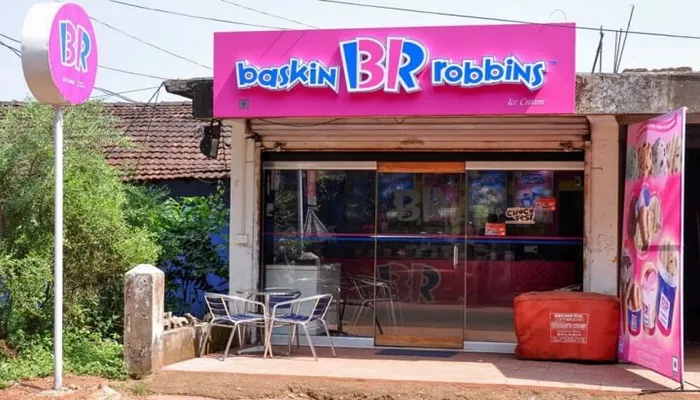Opening a Baskin Robbins franchise is a popular business choice for entrepreneurs due to the brand’s strong recognition and consistent demand for its ice cream. Many prospective franchise owners wonder how much they can expect to make from owning a Baskin Robbins franchise. This article will explore the potential earnings of a Baskin Robbins franchisee, including factors that affect income and the overall profitability of the business.
Introduction to Baskin Robbins Franchise
Baskin Robbins, known for its “31 flavors” of ice cream, is one of the largest and most recognizable ice cream chains in the world. Founded in 1945, the company now has thousands of locations in over 50 countries. With a history of strong brand loyalty and a wide range of products, including ice cream, cakes, and beverages, the Baskin Robbins franchise offers a proven business model for entrepreneurs.
The decision to open a Baskin Robbins franchise involves significant financial investment. However, the brand’s reputation and established customer base can provide franchisees with a solid opportunity for success. To determine how much a Baskin Robbins franchise owner can expect to make, several factors need to be considered, including initial investment, operational costs, and revenue potential.
Initial Investment and Fees for a Baskin Robbins Franchise
Before examining the earnings potential, it’s essential to understand the initial financial commitments involved in opening a Baskin Robbins franchise. The initial investment includes a franchise fee, equipment costs, lease payments, and marketing expenses.
Franchise Fee
The franchise fee for a Baskin Robbins location is typically around $25,000. This fee grants the franchisee the rights to operate a store under the Baskin Robbins brand, providing access to their training, marketing materials, and operational support.
Total Investment
The total investment required to open a Baskin Robbins store can range from $200,000 to $400,000. This includes the franchise fee as well as the costs for construction, equipment, signage, initial inventory, and working capital. The specific amount varies depending on the location, size of the store, and local market conditions.
Ongoing Fees
In addition to the initial investment, franchisees are required to pay ongoing fees. These include:
Royalty Fees: Franchisees pay a royalty fee of approximately 5% of gross sales. This fee helps cover the ongoing support from Baskin Robbins, including training, product development, and brand marketing.
Advertising Fees: Franchisees also contribute to the brand’s national and regional marketing efforts. The advertising fee is typically 4% of gross sales.
Factors That Affect Franchise Owner Earnings
While the potential for profit exists, the earnings of a Baskin Robbins franchise owner can vary significantly based on a number of factors.
Location
The location of a Baskin Robbins franchise is one of the most significant factors affecting revenue. High-traffic areas, such as malls, shopping centers, or near schools and parks, tend to generate higher sales due to increased foot traffic.
Franchisees in densely populated urban areas often see higher revenues compared to those in rural or less populated regions.
Operating Costs
Operational expenses also play a key role in determining profits. These include rent, utilities, labor costs, insurance, and inventory. Rent can be a major cost, especially for locations in prime areas. Managing costs efficiently while maintaining product quality and customer service is essential for maximizing profit.
Sales Performance
Baskin Robbins franchise owners’ earnings are primarily driven by sales volume. Successful franchisees who focus on marketing, customer loyalty programs, and consistent product offerings tend to perform better financially. Seasonal sales fluctuations, such as summer months when ice cream is in higher demand, can also affect revenue.
Operational Efficiency
Efficient operations are essential to maintaining profitability. Franchise owners who implement best practices in inventory management, employee training, and customer service can reduce waste, improve productivity, and boost customer satisfaction, leading to increased sales and higher profits.
Average Earnings of a Baskin Robbins Franchise Owner
The earnings of a Baskin Robbins franchise owner can vary greatly depending on the factors mentioned above. However, on average, a Baskin Robbins franchise can generate $400,000 to $1,000,000 in annual gross sales, depending on location and size. Franchisees typically earn 10-20% of their gross sales as profit, meaning the average annual income for a Baskin Robbins franchise owner can range from $40,000 to $200,000.
It’s important to note that these figures are averages, and actual earnings can be higher or lower depending on the individual franchise’s performance. Franchisees in high-volume locations or those who own multiple stores may earn more, while those in less favorable locations may earn less.
Profitability and Return on Investment (ROI)
Franchisees can expect to see a return on investment (ROI) over time. The typical timeline for recouping the initial investment in a Baskin Robbins franchise is around 3 to 5 years, although this can vary depending on sales and operating costs.
Successful franchise owners who implement effective business strategies and maintain high-quality service can generate significant profits in the long term. Multi-unit ownership, where a franchisee operates several Baskin Robbins locations, can also increase overall earnings.
Financial Risks and Rewards
Like any business, owning a Baskin Robbins franchise comes with financial risks. These include fluctuating sales, unexpected expenses, and market competition. Franchise owners must be prepared for slow periods or unforeseen challenges that may affect their cash flow.
However, the rewards of owning a Baskin Robbins franchise can be substantial. Franchisees benefit from a globally recognized brand, a proven business model, and ongoing corporate support. By maintaining operational efficiency, providing excellent customer service, and choosing the right location, franchise owners can create a profitable and sustainable business.
Conclusion
Owning a Baskin Robbins franchise can be a lucrative opportunity for those interested in the foodservice industry.
Franchisees have the potential to earn a significant income, with earnings typically ranging from $40,000 to $200,000 per year. The actual earnings depend on various factors, including location, sales volume, operational efficiency, and local market conditions.
Related topics:
- When Are Burger King Cheesy Tots Coming Back?
- What to Eat with Sweet Potatoes Healthy?
- What Is The Cost for A Chick Fil A Franchise?

